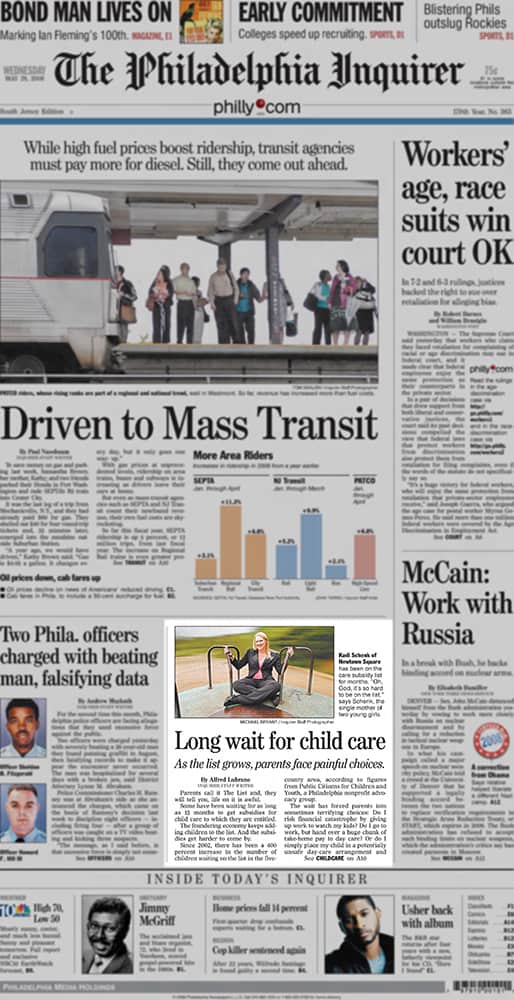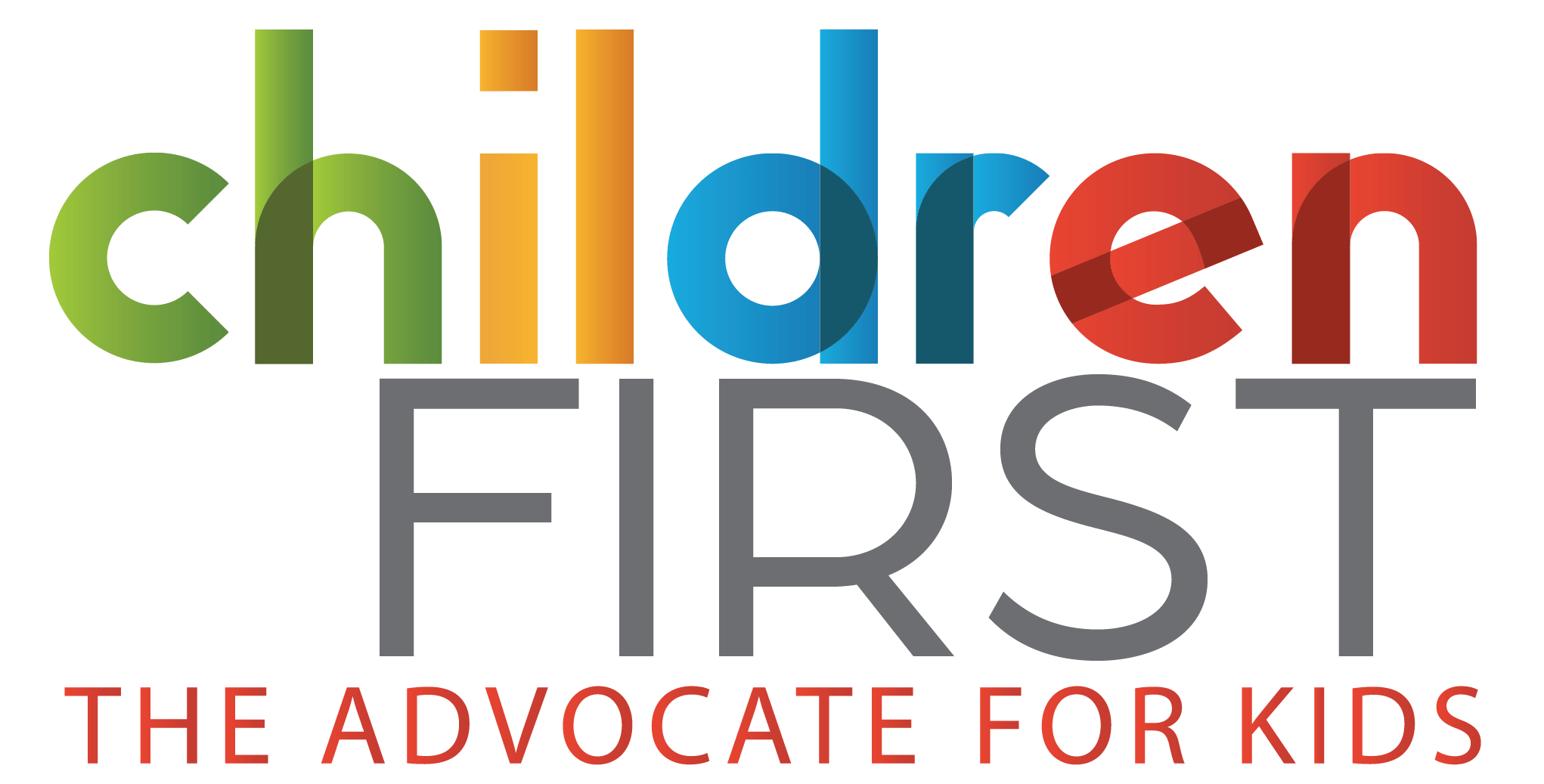Early Learning

Over the past decades, dramatic changes in family life and the structure of the economy have increased the demand for affordable child care, while science has underscored the importance of providing all young children with high-quality early education. While progress has been made, the cost of early care is beyond the reach of most low-income and poor families, quality requires improvement, and persistent waitlists continue.
PCCY has worked for decades to position child care and education as programs that not only assist families but support the economy. PCCY has been at the forefront to expand investment in and increase quality of early care and education since the beginning days, as well as a fight to support the living wage and educational attainment of the early care workforce.
In the 1990’s, PCCY led local and state campaigns to include child care as part of its efforts to keep children’s needs on the minds of policymakers shaping comprehensive welfare reform. During most of the 2000’s, federal funding failed to keep pace with inflation. During this period, PCCY helped lead the fight for Pennsylvania to increase funding for subsidized child care.
In July 2005, PCCY advocated for Pennsylvania to make changes in subsidy eligibility requirements making it easier for families in need to qualify. Parents’ work requirements were reduced from 25 to 20 hours per week and educational opportunities were increased. A requirement that families receiving subsidy file for court-ordered child support was dropped after the Department of Public Welfare (DPW) concluded the provision was creating difficulty within families. When calculating income eligibility, DPW stopped including the income of parents’ live-in partners, deducted some income from step-parents and approved new methods for applicants to verify their incomes – all changes that had been sought by family advocates.
A push toward quality remains a key pillar of PCCY’s advocacy for high quality child care. After decades of advocacy thousands of children receiving subsidy are enrolled in programs participating in Keystone STARS, Pennsylvania’s voluntary child care quality improvement initiative.
PCCY joined the Southeast PA Early Childhood Coalition – a group of organizations working to improve child care quality in Philadelphia by eliminating structural barriers to licensed care, ensuring child safety, monitoring the city’s quality care capacity and coordinating stakeholders’ efforts.
To elevate the conversation around early education on the state level, in 2012 PCCY lead a coalition of organizations focused on early education to launch Early Learning PA (ELPA). ELPA is a broad-based coalition that advocates for access to voluntary, high-quality early learning care and education and healthy development opportunities for all Pennsylvania children. ELPA’s public policy agenda focuses on five key components of early learning opportunities: pre-kindergarten, child care, home visitation, perinatal and child health, and early intervention. ELPA’s mission is to secure adequate resources to ensure all Pennsylvania’s children and families have access to voluntary, high-quality early learning care and education and healthy development opportunities that capitalize on a child’s most rapid period of brain development – birth to age 5.
But the demand for such programs continues to outpace the availability of public funds, forcing children, families and communities throughout Pennsylvania to wait years for access to safe, affordable early education programs. The positive impact of programs like Child Care Works for children, families and the economy is hampered by a chronic shortage of funds available to Pennsylvania’s low-income working families.
After decades of advocacy on behalf of publicly funded, early education programs PCCY organized a group of ten partners, all eager to accelerate the expansion of publicly-funded pre-k across Pennsylvania, to pursue a multi-year investment by the William Penn Foundation. Its first campaign, Pre-K for PA, was launched in 2013 creating a demand for increased public investment and paving the way for one of the nation’s most progressive soda taxes to fund universal pre-k.
Pre-K for PA’s strategy to force the conversation in the Pennsylvania campaign for Governor, caused pre-k to become a top tier issue and legislative priority for newly elected Governor Tom Wolf. Between 2014-2019 a community of nearly 20,000 supporters, 600 organizations, and nearly 150 Leadership Council members was built. During that time, Pennsylvania invested $145 million in publicly funded pre-k.
To advance the conversation around access to high quality child care, in 2018, PCCY launched Start Strong PA – a statewide collaboration of partners aiming to support families by advocating for increased access to and affordability of high-quality child care programs, beginning with infants and toddlers.
In 2017, ELPA launched Childhood Begins at Home, a statewide campaign to help policymakers and the public understand the value of evidence-based home visiting and support public investments in the programs. Since the campaign began, PCCY has played an integral part in winning funding increases more than doubling the state investments. This has helped serve many more Pennsylvania families, yet it represents only a fraction of those who could benefit the most.
As the City of Philadelphia continues to implement universal access to high-quality pre-k seats funded by the city-wide soda tax fought for and won by PCCY and its Our Kids are Worth It Campaign — like many government-funded programs for kids, it didn’t happen overnight and PCCY will continue to help lead the charge.
The pace and effectiveness of the advocacy around pre-k is palpable, as the issue becomes ubiquitous in the halls of the PA Capitol and in Pennsylvania cities large and small. As pressure for pre-k expansion builds, PCCY is stepping up pressure in Philadelphia.
On May 19, 2015, Philadelphians voted overwhelmingly (80 percent) to create the Philadelphia Commission on Universal Pre-Kindergarten. Its charge: propose a universal pre-k program that provides quality, affordable and accessible services to three- and four-year-olds throughout Philadelphia.
In 2016, PCCY takes pre-k to the streets of Philadelphia, making access to publicly funded pre-k a top tier issue in the Mayoral race. PCCY persuades all candidates to commit to funding universal pre-k across the city, and is front-and-center as Mayor Jim Kenney proposes a soda tax to fund pre-k in his first address to City Council. PCCY is at the table when the Philadelphia Joint Commission on Pre-Kindergarten defines Universal Pre-k, recommends quality improvements, and identifies financing options including the sweetened beverage tax.
During this time, PCCY led a coalition of advocates in the Our Kids are Worth it! campaign to support the implementation of a soda tax to fund pre-k. The multi-layered campaign was dwarfed in spending by the beverage industry but prevailed when Philadelphia City Council imposed a 1.5-cents-per-ounce tax on June 16, 2016. As part of the compromise legislation that passed, the tax was also imposed on artificially sweetened beverages, such as diet soda. The law became effective February 20, 2017, and enrollment of the first 2,000 pre-k slots began.
The beverage industry didn’t give up easily though and filed a costly and prolonged lawsuit in an attempt to hinder Philadelphia’s ambitious plan to give Philadelphia’s youngest children a great foundation of learning, reduce inequality and poverty, and improve Philadelphia schools. PCCY joined the voices for kids, filing an Amicus Brief in support of the tax on beverage distributors.
On July 18, 2019, in a 4-2 majority opinion, the Pennsylvania Supreme Court found that the city had not violated state law by taxing the distribution of beverages, removing the final hurdle between pre-k and Philadelphia children. With the enactment of the tax and expansion toward universal pre-k, the lives of thousands of children got better and Philadelphia became a better place to raise kids.
A poll commissioned by the Pre-K for PA campaign during that time showed 75 percent of likely voters support increasing funding to expand access to high-quality, publicly funded pre-kindergarten, while 94 percent of voters believe that early education is important.
The 2,000 pre-k seats in Philadelphia will grow to 3,000 by 2020; by 2023, that number will be at 5,500. Those children will be far less likely to become involved with the justice system, more likely to graduate high school, and less likely to need special education—benefits that the City and the District will reap for generations.
Pre-k expansion and upgrading recreation centers were key components of PCCY’s Pledge for Philadelphia’s Children, which then-mayoral candidate Jim Kenney signed alongside members of council. The fight for pre-k expansion on the state level continues today, with PCCY still at the forefront, pushing for a bold investment to begin to reduce the number of kids missing out on this once-in-a-lifetime learning opportunity.
